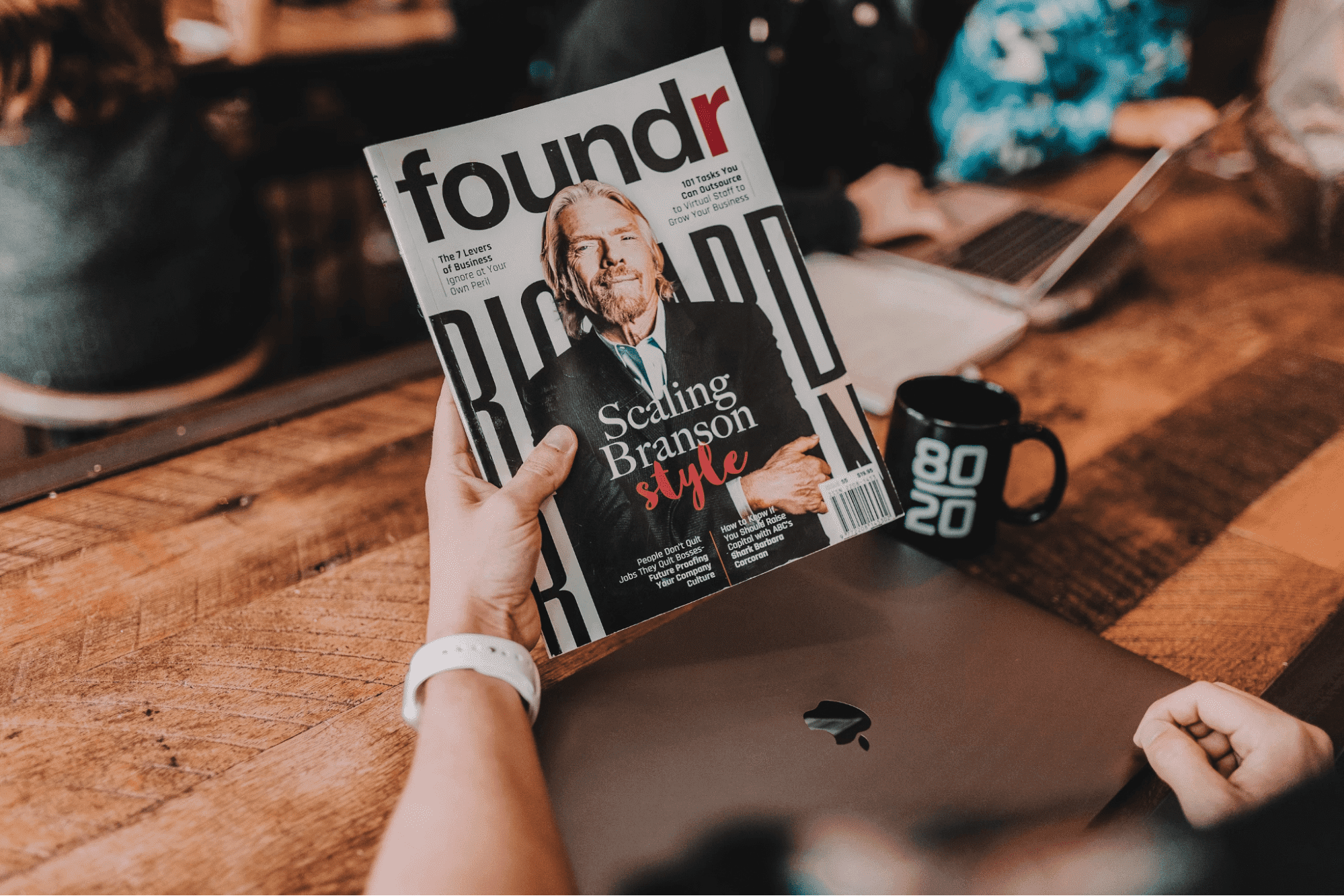Joining as a Late-Stage Co-Founder: What It Means and How to Succeed
Tatevik Kyurkchyan
5 min of reading
If you didn’t hatch the idea yourself, do you think you could still bring it to life and turn it into something extraordinary? Late-stage co-founders have the chance to do just that. Joining a startup as a late-stage co-founder means stepping into a unique position between the initial hustle of early-stage founders and the onboarding of C-suite executives. If you've ever wondered what it means to join as a late-stage co-founder or are considering if this role might be made for you, this guide will break down the pros, cons, and key ways to make it work for you.
What is a Late-Stage Co-Founder?

Late-stage co-founders come into startups at a crucial point: the company has some market validation, a team, and a product in place. However, it still needs a strategic direction and push to scale. Your job is not to build from scratch but to leverage what’s working and refine what’s not, often operating in a “sweet spot” between the foundational work of early-stage founders and the targeted leadership of C-level executives.
How it Compares to Other Roles
Early-Stage Founders: These are the individuals who build the company’s foundation—shaping the initial vision, developing the first product, and navigating every unknown that comes with launching a new venture. They’re deeply involved in every decision, from the big strategic moves to the smallest day-to-day details. In terms of compensation, early-stage founders often take minimal salaries, if any, in exchange for substantial equity stakes. The reward lies in the high-risk and high-reward dynamic, where the potential for future gains is tied directly to the company's success.
C-Level Executives: Hired to oversee specific functions, C-level executives focus on managing established departments like operations, finance, and marketing. They are typically brought in when the company has achieved some stability and needs specialised leadership to refine processes and drive growth in specific areas. Unlike founders, C-level executives usually receive more traditional compensation packages, including competitive salaries, performance bonuses, and smaller equity options. Their focus is on implementing strategies rather than creating them, and their equity is generally much lower because they haven’t been there from the start.
Late-Stage Co-Founders: These founders don’t step into a blank slate but inherit an existing foundation with the freedom to make impactful changes. Compensation for late-stage co-founders typically includes a blend of salary and a significant equity stake, though often less than early-stage founders. You’re still assuming considerable risk, but you’re also joining a venture that has already pierced into the market.
Core Responsibilities of Late-Stage Co-Founders
Your role as a late-stage co-founder is to take the existing potential and amplify it. This means driving growth, refining strategies, and preparing the company for the next stage, whether that’s scaling rapidly, securing further investment, or positioning for an exit. Some core responsibilities include but aren’t limited to
- Scaling Operations: Refine and expand processes to support the company’s growth ambitions.
- Strategic Oversight: Focus on high-level decisions that will shape the company’s future trajectory.
- Culture Development: Play a key role in evolving the culture as the team grows.
- Investor and Stakeholder Engagement: Be actively involved in managing relationships with investors and communicating the company’s progress.
Benefits and Challenges of Joining as a Late-Stage Co-Founder
 As with any other investment of your time and energy, there are pros and cons that you need to consider to understand if a late-stage co-founder's life is for you. This decision may be easier for serial entrepreneurs with several projects in their portfolio, as they already know their way around the lifecycle of a startup. Here are a few takeaways that can help you get a better picture of what to expect.
As with any other investment of your time and energy, there are pros and cons that you need to consider to understand if a late-stage co-founder's life is for you. This decision may be easier for serial entrepreneurs with several projects in their portfolio, as they already know their way around the lifecycle of a startup. Here are a few takeaways that can help you get a better picture of what to expect.
Perks of the Role
- Established Groundwork: You’re stepping into a company with a proven idea and some initial market traction, so you can focus on scaling rather than proving the concept.
- Freedom to Innovate: While the core structure exists, there’s still room to bring your vision and push the company into new territories.
- Balanced Risk: You benefit from the reduced risk of joining an established venture without sacrificing the sense of ownership and influence typical of a founder.
Challenges to Navigate
- Navigating Pre-Set Dynamics: Integrating into an established team and culture can be tricky, especially when trying to introduce new ideas.
- Limited Influence on Early Decisions: Many key decisions have already been made, so you’ll need to work within some existing constraints.
- Managing Founder Relationships: You need to build trust and establish your voice among founders who’ve been there since day one.
Keys to Success as a Late-Stage Co-Founder
 Different people thrive in different settings–and that’s also the case for co-founders. If you have these attributes, you’re more likely to find a seamless fit in a late-stage startup:
Different people thrive in different settings–and that’s also the case for co-founders. If you have these attributes, you’re more likely to find a seamless fit in a late-stage startup:
Entrepreneurial Spirit and Drive: You need the mindset of an entrepreneur—ready to take calculated risks and drive the business forward. You must be proactive, motivated, and passionate about growth, seeing opportunities where others might see obstacles.
Strategic Vision with Practical Execution: While early-stage founders are visionaries who lay the foundations, late-stage co-founders must refine and scale that vision. You need to know how to take the company’s current position and strategically guide it toward the next big milestone without losing sight of the company's mission and vision.
Adaptability and Resilience: Joining a company that’s already operational means navigating existing systems, relationships, and challenges. You’ll need to be highly adaptable, ready to make tough decisions, and resilient in the face of setbacks, as you’ll be steering a ship that’s already in motion. Negotiation and Stakeholder Management: With more established investors, customers, and team dynamics, late-stage co-founders must excel at stakeholder management. You’ll need to negotiate effectively, balance competing interests, and ensure that all parties are aligned with the company’s strategic direction.
Ownership Mentality: You’re not just another member of the leadership team–you’re a co-owner. This means taking full responsibility for the company’s successes and failures, making decisions that align with long-term goals, and being fully invested in the company’s future.
Joining as a late-stage co-founder offers a unique chance to influence and accelerate a company’s growth at an important moment in the journey. The ICEO portfolio is filled with diverse projects, each with its own potential for impact. So if you’re thinking of making the leap from a C-level executive or early-stage founder to a late-stage founder role, reach out to us and learn more about our current opportunities.



